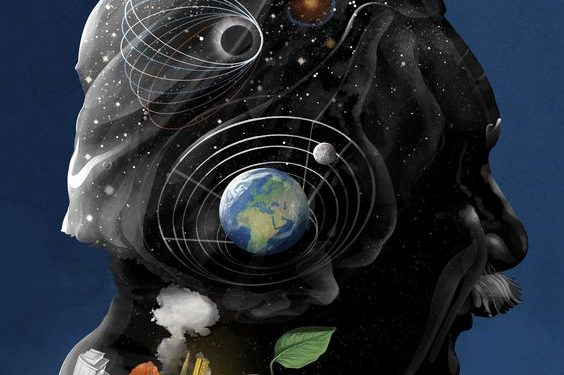Artificial Intelligence, or AI for short, has been a buzzword in the tech world for quite some time now. From sci-fi movies to real-life applications, this rapidly evolving technology has captured our imaginations and transformed many industries. But what exactly is AI? And how far have we come in its development? In this article, we’ll take a deep dive into the latest advancements in artificial intelligence – exploring its history, benefits, drawbacks, and future possibilities. So buckle up and get ready to explore the fascinating world of AI!
What is Artificial Intelligence?
Artificial Intelligence, or AI, refers to the development of computer systems that can perform tasks normally requiring human intelligence. In other words, it is a field of study dedicated to creating intelligent machines that work and learn like humans. This technology relies on complex algorithms and statistical models in order to analyze data and make predictions or decisions based on that analysis.
There are many different subfields within AI, including machine learning (which involves training computers to recognize patterns), natural language processing (which allows machines to understand human language), robotics (which involves designing robots that can perform tasks autonomously), and more.
The goal of AI research is to create machines that can think, reason, and adapt just like humans. While we have made significant progress in this area over the last few decades, there is still much work left to be done before artificial intelligence becomes truly indistinguishable from human intelligence.
The Different Types of Artificial Intelligence
Artificial Intelligence (AI) is an umbrella term encompassing various technologies, each with its own unique characteristics and capabilities. Here are the different types of AI:
1. Reactive Machines:
These machines can only react to a specific set of inputs, without any memory or ability to learn from past experiences. Examples include Deep Blue, the computer that defeated chess champion Garry Kasparov in 1997.
2. Limited Memory:
This type of AI has some memory capacity, allowing it to observe patterns and make decisions based on past experiences. Self-driving cars use this technology.
3. Theory of Mind:
This category involves developing machines that can understand human emotions and intentions through cues like facial expressions and body language.
4. Self-Awareness:
The most advanced form of AI still in development is self-awareness- the ability for a machine to have consciousness similar to humans.
The different types of AI offer diverse possibilities for applications across industries including finance, healthcare, transportation among others by analyzing large amounts of data quickly while reducing errors thus increasing productivity levels in workplaces
The History of Artificial Intelligence
The history of Artificial Intelligence (AI) dates back to the early days of computing in the 1950s. AI is an interdisciplinary field that focuses on developing intelligent machines capable of performing tasks that typically require human intelligence. Some pioneers in this field include John McCarthy, Marvin Minsky, and Claude Shannon.
One of the first applications of AI was in chess playing computers such as Deep Blue, which defeated world champion Garry Kasparov in 1997. However, it wasn’t until recent years with advancements in machine learning and neural networks that AI has become more prevalent in everyday life.
In the past decade, we’ve seen significant developments from voice assistants like Siri and Alexa to self-driving cars. The use cases for AI are vast and continue to expand every day with new innovations being introduced regularly.
Despite its rapid growth over the years, there have been some setbacks throughout history such as misconceptions about what AI can do or ethical concerns around its deployment. It’s important to note these issues so they can be addressed appropriately moving forward.
Looking back at the evolution of Artificial Intelligence shows how far we’ve come but also reminds us that there’s still much more potential waiting to be unlocked!
The Benefits of Artificial Intelligence
The benefits of Artificial Intelligence (AI) are numerous and varied, impacting various industries in different ways. One of the most significant advantages of AI is its ability to automate tasks that were previously performed by humans, which can save time and reduce costs.
In healthcare, AI-powered tools can help doctors diagnose diseases more accurately and quickly than ever before. This not only improves patient outcomes but also reduces the burden on healthcare systems worldwide.
In finance, AI algorithms are used for fraud detection and prevention, reducing losses due to fraudulent activities. Additionally, investment firms use AI to analyze market data and make informed decisions about trading strategies.
AI has also revolutionized customer service with chatbots that provide 24/7 assistance to customers without requiring human intervention. This technology streamlines communication channels between businesses and their clients while providing personalized support at scale.
One notable benefit of AI is its potential to address some of society’s biggest challenges such as climate change through predictive modeling or optimizing energy consumption in smart cities. As such benefits continue emerging from this technology advancements it will be interesting seeing how they shape our future world!
The drawbacks of Artificial Intelligence
While the benefits of Artificial Intelligence (AI) are numerous, there are also some drawbacks that need to be considered.
One major concern is the potential loss of jobs due to automation. As AI becomes more advanced and capable, it may replace human workers in certain industries. This could lead to widespread unemployment and economic instability.
Another issue is the lack of transparency in how AI systems make decisions. It can be difficult for humans to understand why an AI system made a certain decision, which makes it challenging to identify and correct errors or biases.
Privacy concerns also arise with the use of AI technology. With increased data collection and analysis capabilities, there is a risk that personal information will be misused or compromised without consent.
There is the danger of overreliance on AI systems without proper testing or oversight. If an error occurs within an automated system that goes unnoticed, it could have serious consequences for individuals and society as a whole.
While the potential benefits of AI are exciting, we must approach its development with caution and careful consideration of its drawbacks so that we can work towards creating responsible and ethical advancements in this field.
The Future of Artificial Intelligence
As we’ve seen, artificial intelligence is transforming the world as we know it. From improving healthcare to increasing efficiency in industries such as transportation and agriculture, AI has the potential for endless possibilities.
Despite its benefits, there are also concerns about the future of AI – from job displacement to ethical issues like bias and privacy violations. However, with continued research and development, these challenges can be addressed.
One thing is certain – artificial intelligence will continue to evolve rapidly in the coming years. As more data becomes available and computing power increases, AI systems will become even more intelligent and sophisticated.
While there are still many unknowns when it comes to how AI will shape our future society, one thing is clear: this technology holds immense promise for both individuals and businesses alike. With responsible innovation and a commitment to addressing its potential drawbacks, we can work towards creating a better future powered by artificial intelligence.
















